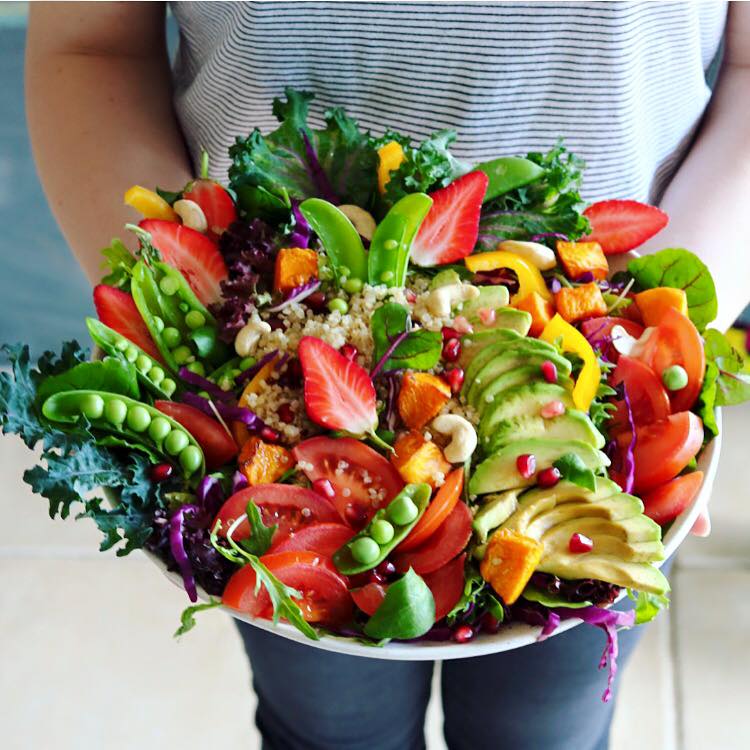How To Maintain A Healthy Weight
It doesn’t matter what time of year it is, the is never the wrong time to start taking good care of yourself, to get fitter, more toned and shed a few extra kilos if needed.
There are lots of things we can do every day to support a healthy body weight, achiever improved overall health and live a healthier, happier life.
Here are a few of my tips;-

1. MOVE
I’m sure you’ve heard that “sitting in the new smoking”.
Schedule some movement/activity into your day. Even get pedantic about it and write it into your daily planner as you would appointments or business meetings to keep you accountable and on track.
Vary your activities. It does not have to be lengthy sessions at the gym or high intensity work outs. Opt for short bursts of exercise/activity throughout the day instead. For example go for a brisk walk, a swim or a gym class in the morning, a walk during your lunch hour and then yoga or a dance class in the evening.
Love your exercise. If you choose activities you thoroughly enjoy, it is more likely that you will stick to it.
Add music. Science has show that exercising to music helps you work harder and makes it so much more enjoyable.
Add some company. Exercising with a friend or in a group also holds you accountable to turn up regularly and can also become an enjoyable social outing with friends.
2. HYDRATE
Drink plenty of fluids – clean filtered water is preferable. There is evidence that true ionized alkaline water is most beneficial for health and well being.
We often think we are hungry when in fact, our body is begging for water. Keeping up your water intake keeps all cells in working order, toxins moving and being eliminated. For optimum health it has been suggested that we consume around 30ml for every kilogram of body weight. This will vary to some extent according to activity level and environmental temperature.
Add a few slices and some juice of a lemon, lime or orange or a couple of drops of a citrus essential oil if you don’t like the taste of plain filtered water.
Green Tea or Rooibos Tea contain health promoting antioxidant catechins and also boost metabolism. Try 1-3 cups of green tea daily.
Don’t drink your calories. Creamy, milky coffees and drinks might taste good but can have the same amount of calories as a whole meal. They can also contain large amounts of sugar and healthy depleting additives.


3. SLEEP
Aim to have 7-8 hours of restful sleep every night for optimum health. It is during sleep that our bodies detox, rebuild and heal.
Research has found that when sleep deprived we are much more likely to choose larger portions of unhealthy snack and chronic lack of sleep is linked to obesity, diabetes and numerous other health problems.
For some tips on better sleep see here – http://www.christinesullivan.com.au/top-tips-for-healthy-sleep-and-hormone-balance/
4. HEALTHY FOOD CHOICES
Begin your day with a hearty breakfast. What you eat for breakfast fuels you and determines your energy for the rest of the day. An ideal breakfast will consist of some protein along with some healthy fats, some vegetables or fruits.
Eat enough protein. Proteins are broken down by digestion into amino acids which are the building blocks for our cells, tissue, organs, blood, hormones etc. Eating some protein at least 3 times a day will provide energy and balance blood sugar levels, burns fat and can help shed excess weight. Choose from grass fed organic meats, organic chicken and eggs, wild caught fish, beans, lentils, nuts and seeds.
Healthy fats like avocado, olives and olive oil, coconut oil and coconut milk, wild caught oily fish like salmon and sardines, nuts and seeds are great additions to a healthy diet. Fat is an essential macro nutrient supplying essential fatty acids for growth, nutrient absorption, hormone production, regulation of inflammation and many bodily functions.
Foods with fat take longer to digest than carbohydrate-rich foods making you feel fuller for longer. You are likely to feel gratified with a smaller meal and you might also be able to curb a snack habit if nutritious fats fill you up and keep your belly happy.
Fibre is the indigestible parts of plant foods. It keeps the digestive system healthy, stabilizes glucose and cholesterol levels and protects against diseases such as bowel cancer, diabetes and coronary heart disease. The best high fibre foods include most fruits and vegetables but especially avocado, peas, broccoli, carrots, berries, figs, pears and melons.
Create a menu. Note your favourite recipes and create a weekly or fortnightly menu. Note the ingredients you need and add them to your shopping list. Do some batch cooking then have one to eat, one for lunch or dinner the next day and one for the freezer.
That way you won’t be thinking “what can I eat?” and then make a bad choice.
Include snacks in your menu planning and batch preparation. Keep them in plain sight in the fridge or pantry to grab on the go.

Downsize your plate size. Sometimes we have to trick ourselves a little. The same serving of food will always look less on a large plate. Serve your meal on a salad sized plate instead of a standard dinner plate. You will still feel satisfied when the plate is empty.
Slow down! It is easy to over eat when you eat too quickly. It takes around 20 minutes for your brain to register that your stomach is full. Chew carefully and slowly. Put down your knife and fork between mouthfuls. Be mindful when eating
Swaps. Swap to more healthy versions of your favourite foods. Try a homemade vegetable laden cauliflower crust pizza rather than the store bought variety.
Treat Meal. Allow yourself a treat occasionally. When my son was little he thought it was a good idea to have a “Vitamin J Day” i.e. a day when he could have treats/’junk’. I agree. It is what you do 90% of the time that will impact your health the most. Give yourself a meal or a day when you have something you love. I usually suggest a Friday night is a good time for treats.
Use grains & dairy as ‘condiments’ rather than major food groups. Use as an occasional snack or ‘condiment’/ garnish to a meal. These foods can pack on the kilos and predispose you to food sensitivities and allergy. Go for sprouted grains or quinoa the load up with veggies.
5. MAKING IT WORK FOR YOU
Never shop on an empty stomach. I’m sure you have heard of this before but it is such an important strategy. If you head off hungry, almost invariably you will end up buying the wrong foods to feed that hunger. Eat well before you go and it is a lot easier to make healthy choices.
Don’t beat yourself up. Never beat yourself up for slips. Everyone will slip up at some time. Living a healthy lifestyle is a process. Do whatever you can when you can.
Make small changes frequently. Decide to make just one healthy change each week (re exercise, water or food intake) and allow yourself time to make it a habit.
